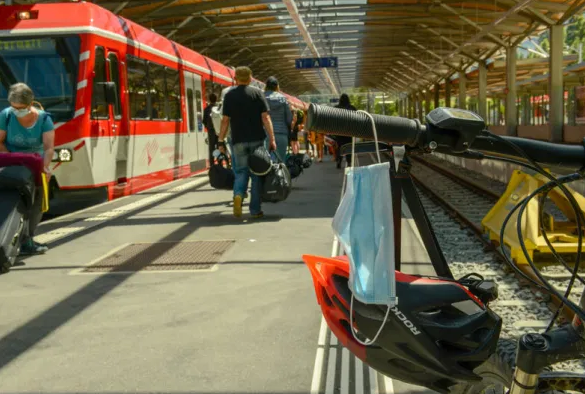© David Moreno | Dreamstime.com The banned substance chlorothalonil, which is in some pesticides, has been found to be above the limit in 60% of ground water samples taken across the canton of Zurich over the last 12 months, reported SRF. Ground water is different to drinking water. Only 20% of drinking water samples taken ...
Topics:
Investec considers the following as important: 3) Swiss Markets and News, 3.) Health, Chlorothalonil Switzerland, Chlorothalonil Switzerland ban, Editor's Choice, Featured, health, newsletter
This could be interesting, too:
Frank Shostak writes Assumptions in Economics and in the Real World
Conor Sanderson writes The Betrayal of Free Speech: Elon Musk Buckles to Government Censorship, Again
Nachrichten Ticker - www.finanzen.ch writes Bitcoin erstmals über 80.000 US-Dollar
Nachrichten Ticker - www.finanzen.ch writes Kraken kündigt eigene Blockchain ‘Ink’ an – Neue Ära für den Krypto-Markt?
The banned substance chlorothalonil, which is in some pesticides, has been found to be above the limit in 60% of ground water samples taken across the canton of Zurich over the last 12 months, reported SRF.
Ground water is different to drinking water. Only 20% of drinking water samples taken across the canton had chlorothalonil concentrations above the legal limit, according to the study. However, Natalie Rickli, Zurich health director, told the broadcaster that the 100 nanogram legal maximum is set very low. According to Rickli, water which slightly exceeds the value is not harmful to health, although measures should be taken to upgrade drinking water in affected regions, she said.
While Martin Neukom, a member of the canton’s government, thinks panicking would be wrong, he thinks doing nothing would be unacceptable too.
Part of the challenge is that pollution prevention is the main way to achieve clean water. Once pollutants such as chlorothalonil are in ground water they can remain for decades. The use of chlorothalonil by Switzerland’s farmers was only banned in from the beginning of 2020. The substance was banned across the EU by the end of May 2019.
Once it is in the environment it is hard to avoid. Researchers at the Swiss Federal Institute of Aquatic Science and Technology (Eawag) recently found traces of chlorothalonil in Evian bottled water, which they were using to calibrate their instruments.
Products containing chlorothalonil are used predominantly on potato, tomato and peanut crops.
There is evidence that points to chlorothalonil and its by products having a particularly negative impact on bees and aquatic life. Some of the breakdown products of chlorothalonil are more harmful than the compound itself.
Tags: Chlorothalonil Switzerland,Chlorothalonil Switzerland ban,Editor's Choice,Featured,Health,newsletter









